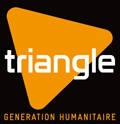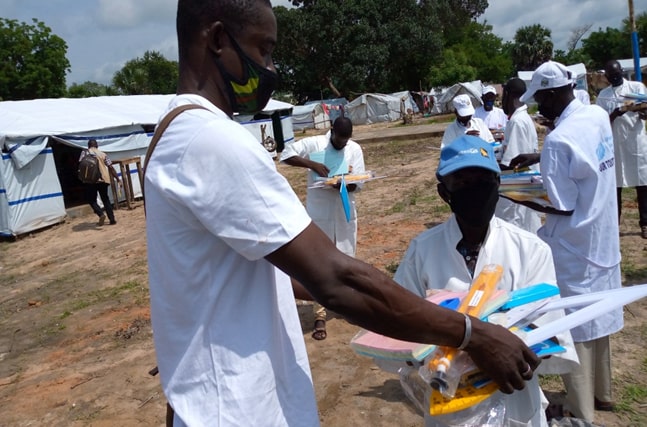AREA OF EXPERTISE

Education and protection

AREA OF EXPERTISE

Education and protection
FUNDING
.jpg)
Humanitarian Fund

An evaluation conducted in September and October 2019 by INTERSOS, partner of Triangle Génération Humanitaire (TGH) in the framework of this project, demonstrates the deterioration in access to education following the escalation of the conflict faced by the sub-prefecture of Birao since September 2019. The education system, which was already fragile, has significantly deteriorated with a loss of access to education at the beginning of the school year, limiting the learning opportunities of 3,600 students, including 1,412 girls. Moreover, this situation exposes them to multiple risks of violation of their fundamental rights.
In such a context, the objective of this project is to facilitate equitable access to educational services for school-age children. The project aims to set up temporary emergency education structures in the “MINUSCA” IDPs site of Birao in collaboration with authorities in charge of the educational system, parents and children.
INTERSOS and TGH intend to enable 2,800 children to be reintegrated into the educational system with a special focus on girls. These activities, which include a temporary dimension linked to the emergency of the situation, are envisaged to reintegrate students into the formal educational system as soon as it will become functional again.

Distribution of pedagogical kits to teachers, Birao, Vakaga prefecture, August 2020. ©Séverin Morgan BOUPONDO, TGH.
To achieve this goal, six Temporary Learning and Child Protection Spaces are being set up at the “MINUSCA” IDPs site of Birao to facilitate the organization of classes, taking into account aspects related to social cohesion among students and psychosocial support. These spaces allow out-of-school children to reintegrate a protective environment in which they can benefit from quality education and adapted teaching materials. The school environment is further improved by the implementation of a “WASH in school” component that involves the construction of latrines and hand-washing facilities in the Temporary Learning and Child Protection Spaces. This project is deployed in an inclusive and egalitarian approach, in order to include children, with no-discrimination of gender, religion or status.
Access to quality education is ensured through training and capacity building of educational staff embodied by the ‘Maîtres-parents” (parent-teachers). Teachers are also trained on teaching methods in emergency situations. Likewise, Parent associations are supported to define their role within the educational structures.
This project also includes an awareness-raising component within the emergency education structures on the importance of schooling before the children return to their original social environments.